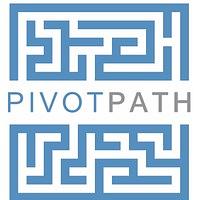
Database Engineer - DHA
Pivot Path SolutionsKey Responsibilities
Architect, design, implement, and maintain enterprise-level database systems with a focus on SQL Server.
Perform large-scale data migrations and develop/execute ETL (Extract, Transform, Load) processes for structured and unstructured data.
Design and implement optimized database schemas, tables, views, indexes, and stored procedures to support mission-critical applications.
Ensure data integrity, availability, security, and compliance with DoD, DHA, and federal data governance standards (including HIPAA, NIST SP 800-171, and RMF).
Collaborate with program managers, developers, system engineers, and cybersecurity staff to align database solutions with enterprise requirements.
Provide performance tuning, troubleshooting, and disaster recovery planning for production databases.
Develop and maintain metadata repositories, data dictionaries, and documentation for enterprise use.
Support federal clients (including DHA, VA, HHS, and other agencies) in advancing data modernization and governance initiatives.
Mentor junior engineers and contribute to the development of best practices, standards, and reusable components for database management.
Qualifications
Bachelor’s degree in Computer Science, Information Systems, or equivalent work experience.
10+ years of experience in database administration and database architecture with SQL Server in enterprise or federal environments.
Proven experience performing large-scale data migrations and ETL pipeline development.
Hands-on expertise implementing and maintaining database schemas and optimizing performance within SQL Server (OpenText integration experience preferred).
Strong knowledge of federal IT standards, particularly in healthcare IT or defense environments (DHA experience highly desired).
Familiarity with data governance, metadata management, and data lifecycle standards.
Excellent problem-solving, communication, and client-facing skills.
Preferred Qualifications
Previous support of DHA or other federal agencies in data management, analytics, or database operations.
Experience with federated data models, data catalogs, or metadata frameworks.
Certifications such as Microsoft Certified: Azure Database Administrator Associate or similar are a plus.
Pivot Path Solutions strives to attract, motivate, and retain the best people in the industry. Our benefits package reflects our continued commitment to our employees by prioritizing the health and well-being of each member. The Company offers a comprehensive compensation package that includes:
- Comprehensive benefits package, including health, dental, and vision insurance
- Generous Contribution on Health, Dental and Vision Insurances
- 100% Employer Paid Group Life Insurance, Short Term and Long-Term Disability
- Safe Harbor 401(K) Plan
- Health Saving Account (HSA)
- Healthcare Flexible Saving Account (FSA) and Dependent Care FSA
- Education Reimbursement
- Employee Referral Program